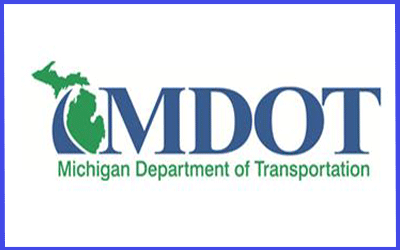
DNR extends snowmobile trail grooming season
 |
||
DNR News |
||
|

 |
||
DNR News |
||
|

Press Release FOR IMMEDIATE RELEASE: March 28, 2023 CONTACT: Chelsea Wuth, 517-241-2112, WuthC@michigan.gov MI Kids Now Loan Repayment Program offers student debt relief to behavioral health providers LANSING, Mich. – Medical providers of behavioral health services in Michigan may be eligible for educational loan repayment through the MI Kids Now Loan Repayment Program. This program focuses on incentivizing behavioral health providers to provide mental health services through nonprofit, outpatient organizations across the state. “This program was designed to assist in recruiting and retaining behavioral health providers to help Michiganders access care within their communities,” said Elizabeth Hertel, MDHHS director “Our shared goal is to assist providers in building long-term behavioral health infrastructure to serve children, youth and families across the state.” The loan repayment program is open to providers of services to both children and adults, but the priority will be providing debt relief to those who serve children. Eligible providers will be selected to enter into consecutive two-year agreements. The program will assist those selected with up to $300,000 to repay educational debt over a period of up to 10 years. The program is available to behavioral health providers, including psychiatrists, psychologists, social workers, counselors, therapists, case managers and certified behavioral analysts. Those eligible must provide in-person, outpatient behavioral health services through eligible non-profit practice sites, including public school-based systems and community mental health organizations. The MI Kids Now Loan Repayment Program application cycle is June 12 – June 23. Further information regarding eligibility, selection criteria, application instructions and frequently asked questions can be found on the MI Kids Now Loan Repayment Program website. Behavioral health providers are encouraged to review the materials in advance and submit applications when the cycle begins. Providers should note that guidelines, eligibility criteria and application instructions have changed for the 2023 application cycle. Further information can be found on the program website. Providers who have questions or need more information can email MDHHS-MIKidsNowLRP@michigan. |

March 30, 2023
Contact: press@michigan.gov
ICYMI: Gov. Whitmer on Getting Things Done in the First 100 Days
“Passed already this year: a tax break for the working poor and seniors, protections of LGBTQ rights”
LANSING, Mich. — In an interview with CBS Sunday Morning, Martha Teichner discusses the historic legislation that Governor Whitmer has signed within the first 100 days of her second term and her work addressing the issues that matter most to Michiganders.
Since January, Governor Whitmer has announced three tax cuts to put $1.6 billion back into Michiganders’ pockets and Michigan has secured 2,500 good-paying auto jobs. In March, Governor Whitmer signed legislation expanding the Elliot-Larsen Civil Rights Act to protect LGBTQ Michiganders and expanded workers’ rights. She has worked with legislators to pass commonsense gun violence legislation and a repeal of the dangerous 1931 abortion ban.
“TEICHNER: In her second term, she has the power to act and is in a hurry to use it.”
[…]
“TEICHNER: Passed already this year: tax breaks for the working poor and seniors, protections of LGBTQ rights, a rollback of restrictions on labor unions.”
[…]
“GOVERNOR WHITMER: We need a governor that is going to stand up for our voting rights, our civil rights, make sure Michigan is a place for everybody.”
“TEICHNER: Whitmer championed protecting abortion rights.”
[…]
“GOVERNOR WHITMER: I’m just here to be the governor of all people in the state of Michigan.”
Accomplishments in the First 100 Days
Since January, Governor Whitmer has worked with legislators to roll back the retirement tax and quintuple the Working Families Tax Credit, cutting taxes by $1 billion for working families and seniors. Last month, she announced that Michigan won 2,500 good-paying auto jobs. In March, Governor Whitmer signed bills to expand the Elliott-Larsen Civil Rights Act, reaffirming legal protections for sexual orientation and expanding coverage to include gender identity and expression, and expand workers’ rights. In the wake of last month’s shooting at Michigan State University, Governor Whitmer has worked with legislators to pass common sense gun violence prevention legislation, including background checks, safe storage, and extreme risk protection orders.
What’s Next on the Governor’s Budget
In her 2024 budget recommendation, Governor Whitmer proposed investments to lower costs for Michigan families including taking the first step toward providing pre-K for all of Michigan’s 4-year-olds. She also proposed investments to expand MI Kids Back on Track with tutoring and after-school programs. Governor Whitmer called for dedicated resources for the first time ever to hire, train, and retain local cops, firefighters, and EMTs and upgrade public safety facilities and equipment. And earlier this month, Governor Whitmer signed legislation that addressed one of the proposals laid out in her budget recommendation to establish the Community Violence Intervention initiative and provide grants to community-based organizations that provide community violence intervention services.

State of Michigan announces Mobility Wallet Challenge LANSING, Mich. – The Michigan Department of Transportation (MDOT) and the Office of Future Mobility and Electrification (OFME) announce Michigan Mobility Wallet Challenge awards under the mobility wallet pilot program, which aims to increase the interoperability of transit services and create greater access and equity to personal mobility for Michigan residents. These selections are Ecolane Inc., Feonix – Mobility Rising, and the Regional Transit Authority of Southeast Michigan (RTA). The program’s goal is to simplify the transit payment process by allowing riders or third-party stakeholders to load funds and/or connect bank accounts to a single platform and create a streamlined mechanism for fare payment and collection, thereby increasing access to vital mobility services in Michigan. The Michigan Mobility Wallet Challenge is a collaborative effort, including MDOT, OFME, the Michigan Department of Labor and Economic Opportunity (LEO), and the Michigan Poverty Task Force (PTF). “Michigan is on the forefront of innovations in developing new technologies for public transit users, Acting State Transportation Director Brad Wieferich said. “These mobility wallet solutions will help provide easy and equitable access to various transportation providers across the state.” Ecolane LLC will develop a mobility wallet solution using their X4MaaS platform that enables transportation providers to integrate all their modes (fixed route, ADA, micro-transit, demand-response, rideshare, and bikeshare) into a single mobile app for a unified rider experience. The mobility wallet solution will integrate ZIG, a sensor technology developed by ZED Digital, which lets public transit users pay from their smart phone without removing the device from their pocket, or by using a smart card if they do not have a smart phone. The platform also includes carbon footprint information for the various transportation options. X4MaaS integrates with one of the first hands-free mobile wallet solutions to be introduced in the U.S. market, an internet of things-based sensor technology that is fully compliant with the Americans with Disabilities Act (ADA). A video demonstrates ADA compliant ticketing for ZIG Super Wallet technology. Awarded $888,800 for this project, Ecolane’s mobility wallet will be deployed to nine transit agencies in Michigan. “We are honored to have been selected by the Michigan Department of Transportation for this opportunity to offer our mobility wallet to agencies across the state,” said Spiro Gjorgjievski, president of Ecolane. “Ecolane’s focus with the Mobility Wallet will be to ensure an integrated customer experience through our single mobility as a service platform X4MaaS, which unifies all mobility modes – including fixed route, ADA, paratransit, microtransit, scooters, bike rentals, and others – operated by an agency for trip planning, booking, and payment while empowering riders to achieve all of that through their mobile devices.” Active in Michigan since 2018, Feonix – Mobility Rising is a 501(c)(3) nonprofit organization dedicated to providing mobility solutions for the health and well-being of every person in every community. The mobility wallet that Feonix will deploy will support Detroit, Grand Rapids, Jackson, and surrounding areas. The initial focus will be on meeting the needs of veterans, with the project launch planned for Aug. 7, recognizing Purple Heart Day. In January 2024, Feonix will use the mobility wallet to fill transportation gaps for families and individuals experiencing poverty. Development partners of the mobility wallet technology and deployment include SkedGo, MoCaFi, Metro Strategies, Menlo Innovations, Sundberg Ferar, University of Michigan, Michigan State University, Uber, and Token Transit. Michigan community partners and transportation partners joining Feonix include: West Michigan Veterans Coalition, Disability Advocates of Kent County, Mobile GR-City of Grand Rapids, HOPE Network, Kent County Essential Needs Task Force, Metro Detroit Council – Navy League of United States, The Welcome Home Organization, Michigan Works Southeast, Region 2 Area Agency on Aging, Western Washtenaw Area Value Express (WAVE), City of Hillsdale, Key Opportunities, Jackson County Military Coalition, The Rapid, Jackson Area Transportation Authority, Lenawee Public Transportation Authority, Ride Your Way, Care on Wheels, Superpedestrian, Lime, “Feonix is honored by the opportunity to work alongside such incredible partners and advocates in urban and rural communities to break down critical transportation barriers in accessing healthcare, employment, and essential needs for Michigan veterans and individuals and families experiencing poverty,” said Valerie Lefler, executive director and chief executive officer (CEO) of Feonix – Mobility Rising. “The benefits of mobility to public health as well as the broader economy cannot be understated.” The Regional Transit Authority of Southeast Michigan is responsible for developing a regional master transit plan, coordinating regional transit projects and programs, and distributing federal and state transit formula funds in the four-county region of Macomb, Oakland, Washtenaw, and Wayne counties. The RTA in partnership with regional mobility providers, including the United Way for Southeastern Michigan, Detroit at Work, and Downtown Detroit Partnership developed a mobility wallet pilot and project development approach focused on the principles of universal basic mobility. The pilot program will deliver an account-based mobility wallet that meets the five key functions established by ITS America. The mobility wallet will have the capability to access multiple transportation services, including DDOT, SMART, QLine, People Mover, MoGo, and at least one scooter company. In addition, the mobility wallet pilot will seek to test methods for deploying fare-capping across multiple providers and subsidy programs with a focus on equity and access for a largely cash-based transit rider population. The unique element of this project is that the partners have decided to take a phased human-centered design approach to this challenge due to the diversity of mobility options that are being integrated, the existing fare technology involved, and the scale of the mobility equity issues for potential wallet users. The RTA was awarded $1 million for this project. “The Regional Transit Authority of Southeast Michigan is thrilled to receive a grant to be the lead agency coordinating efforts for the Michigan Mobility Wallet Challenge in our region. We look forward to collaborating with our partners from MDOT, MEDC, and the Office of Future Mobility and Electrification on this project,” said Ben Stupka, interim general manager of the RTA. “This initiative will help transform the transit landscape in Southeast Michigan by using this innovative technology to simplify the transit payment process. We hope the knowledge gained during this pilot program can be used as a blueprint that can be replicated and introduced across the state. Creating a streamlined mechanism for fare payment is a significant step toward improving the transit experience for Michiganders.” To learn more about how Michigan is leading in transportation mobility and electrification visit www.michiganbusiness.org/ |

|
|||||||||
|
|||||||||
News Digest – Week of March 27, 2023
Got a sweet tooth for your own maple syrup? Sign up for our April 1 clinic in Cadillac! |
|||||||||
|